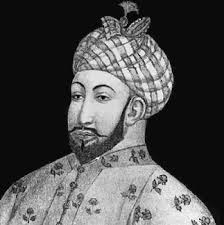We know that India or Hindustan (as it was called that time) was ruled by an absolute monarch until 1857 when the country came under the British Crown. Due to dis-organisation, division and enmity within the kingdoms, many foreign rulers invaded Hindustan at different times in medieval centuries.When a strong, authoritative and tactical king ruled, only then did our country stay united under that monarch. But there was one period in Indian history when the natives of our country were predominantly under military rule – under the Delhi Sultans. It is difficult to digest the fact but it is true that during Delhi Sultanate period, which lasted for 320 years, our country was under their military rule.
In those times military rule was not explicitly recognised by the society because monarchy was the order of governance prevalent throughout the world. So, when the new ruler came to power after dethroning the latter, he was proclaimed as King rather than being called by his military designation. Whenever a ruler died, murdered, exiled or overthrown during that period, he was replaced by his usurper who usually was a military personnel or governor in the former’s reign. It happened only few times that the son of a sultan ruled the country after his father’s death. Even if the son came to power, he was influenced by the kingdom’s ministers and nobles.The reasons for such consequences were that there was no clear-cut succession policy of the rulers. Moreover, the system of governance was weak and it mostly depended on the ability and personal character of the ruler. Within 320 years of its reign, Delhi Sultanate saw a total of 5 dynasties. This proves that most rulers from military background might be excellent in winning wars but were poor administrators and incompetent to rule for long years.
Usually, all empires achieve a peak period just like the business cycles in economics. After achieving the precipice, the empire starts declining and ultimately becoming a weak and non-influential power. This cannot be said about the Delhi Sultanate. Actually, the empire never reached its precipice. There was progress during the reign of Iltutmish, Ghiyaz-ud-din Balban and Ala-ud-din Khalji but it was incomparable to the influence Mauryas and Guptas had in the past. Rest of the sultans, barring Mohammad Bin Tughlaq and Firoz Shah Tughlaq did not rule for long because of internal conspiracies to dethrone the incumbent and excess power in the hands of the army. Also, the sultans could not integrate and unite the country even if they had conquered most parts of medieval Hindustan. It can be said that the period of Delhi Sultanate was similar to that of Ancient Rome with respect that hands of power changed to quickly.
All the above reasons show that military rule was never successful in the past. I agree that an empire lasting for 320 years and forming a substantiate part of Indian political history cannot be termed unsuccessful. But the empire consisted of five dynasties, all having their origins outside Hindustan, rather than one dynasty. Even in modern political environment, military rule is said to be a very oppressive and autocratic political system mostly leading to anarchy in a country. Sultans of Delhi ruled in a similar manner but usually for few years before being overthrown by another ruler. Such political instability led to various invasions by Mongols and Timur at different points of time in that period. The fact that no one among the native Indians could lead a revolt or stand tall against the Delhi Sultans is the fundamental reason why Delhi Sultanate got so much importance in Indian history.





9 Comments. Leave new
It is great to know about the history we have gone through. Great work.
Thank you Shatakshi.
well explained
Unique concept..!
Nice concept and nicely written..
Thanks Soham, Padmaa and Stephy.
Good research done by you 😀
The liked the title 😀 and the content very much
As it was simple and with relevent infomation rather than filling it up with Rublish 😀
You opted for the selective info put in to to your article 😀 to make this awesome work 😀
Good work keep it up 😀
Interesting topic. Good work 🙂
nice work. History has always been my fav subject. loved reading it